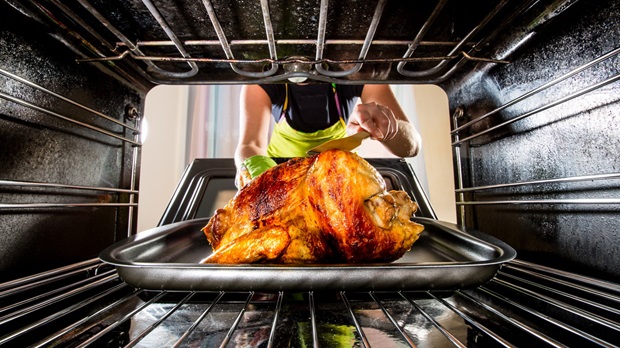
ANDREY ARMYAGOV / SHUTTERSTOCK.COM
You say you’re nervous to face your family this Thanksgiving? You’re hoping just this once you get through the holiday without a bruised ego?
Look to the saints! The great prophets of yore!
Their likely response?
“Don’t count on it.”
They might say something like “Gird up your loins like a man.”
Family dinners were rough back then. Just ask Esau how he enjoyed Jacob’s bowl of stew.
But isn’t it written that “God hath not given us the spirit of fear; but of power, and of love, and of a sound mind”?
To this you respond: He didn’t have to sit through the “parboil vs. pressure cooker canning” debate from 2008. Alliances were drawn and the table was split. Veins popped out of necks while loving family members annihilated siblings.
“Parboiling is akin to serving mashed baby food to the family!”
“Pressure cooking? You’re taking your life in your own hands! Think of the children!”
Because clearly, this was an argument for the sake of the kids.
My friend called me once in the middle of her holiday with family. She had a packed house of loved ones. In the background, I could hear the crackle of laughter, the crackle of the fire, the crackle of knuckles? The crackle of her favorite stemware? She was saying something I couldn’t understand.
“What’s happening?” I asked.
“Somebody’s about to be on the news,” she muttered. “That’s what’s happening.” Then she hung up.
Some of us can relate.
What I don’t understand are those people who rave about their holiday get-togethers. In fact, who even started the practice of telling fables about perfect family camaraderie around a roaring fire with the people we’ve teased and stereotyped and shoved and punched our whole lives?
We could start with Jesus.
Jesus spoke kindly of his ancestors, like Jonah and Solomon and David, when in fact Jonah was ungracious, Solomon lived with forbidden concubines, and King David unattractively made a really, really, really bad dad to his sons—one of whom tried to kill David and overtake his throne.
Ah, but that Jesus. He’s a loyal one. You might get a tough-guy vibe from him as he castigates the “religious” Pharisees. But when he mentions his family, he presents Jonah as prophetic and Solomon as wise and David as an honorable patriarch.
“Well . . . that’s not exactly representing what went down with his family,” one might say.
“Well . . . that’s not the way I see it,” Jesus might say.






